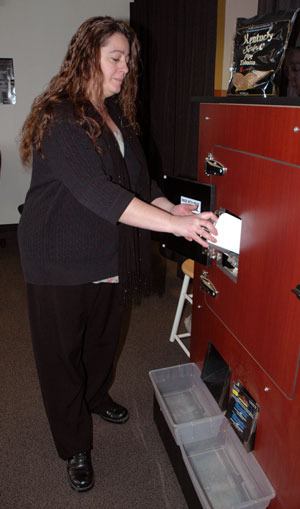OLYMPIA — A bill that passed the state House on March 6 before moving to the Senate promises to have profound impacts on a very specialized line of businesses in Marysville, Arlington and beyond.
House Bill 2565 would require roll-your-own cigarette retailers — such as Marysville Tobacco Joe’s and Arlington Tobacco Express — to become certified and pay an annual certification fee of $100, as well as to purchase tax stamps to enforce the collection of taxes on tobacco products. Those stamps would be affixed to containers of roll-your-own cigarettes and customers would be required to carry their cigarettes in those containers.
Joe Baba, a tobacco distributor for Washington state who owns multiple roll-your-own cigarette stores in the area, noted that there are more than 65 such stores in the state, employing an estimated 250 workers. Like Michael Thorn, owner of Marysville Tobacco Joe’s, and Jill Murphy, owner of Arlington Tobacco Express, Baba argued that HB 2565, which passed the state House by 67-30 on March 6 before its first reading in the Senate on March 8, would effectively shut down their businesses.
“It’s based on pie-in-the-sky numbers,” Baba said. “The fiscal note of $13 million that it would yield was only because they wouldn’t allow that number to be revised a third time. It had already been revised down twice. It’s phantom revenue for the state.”
Thorn elaborated that the fiscal note estimate of $13 million is based on the assumption that roll-your-own cigarette stores will sell 715,000 carton equivalents, when the retailers themselves are projecting sales of 360,000 in 2012. According to Thorn, Marysville Tobacco Joe’s sells an average of 20 carton equivalents a day, while Murphy estimated that Arlington Tobacco Express moves between 17-38 boxes a day.
“It also assumes $12.6 million in revenue from imposing the cigarette tax on these stores, which is not true,” Thorn said. “The stores will close down and their customers will migrate to rolling their own at home, with store-bought machines, or will migrate to other sources that do not collect any state-imposed tobacco tax.”
Thorn and Murphy’s customers purchase tobacco from their stores to roll in their machines, and pay nearly half for their tobacco than those who purchase pre-manufactured cigarettes. With the state tax rate for a carton of 200 cigarettes at $30.25, both retailers agreed that taxes on roll-your-own cigarettes would be higher than taxes on pre-manufactured cigarettes.
“Who’s going to take half an hour out of their day to feed tobacco and tubes into our machines and to pay more money to do it?” Thorn asked. “Nobody wants to talk about this, but when bills with the same verbiage show up in seven different states on the same day, I think Big Tobacco has had a hand in it.”
Murphy echoed Baba and Thorn’s assertions that such legislation undercuts consumer freedom of choice, and urged lawmakers to seek revenue from sources more likely to yield it.
“Every one of these shops has spent at least $35,000 on the roll-your-own machine just by itself, and you have to have a store address for it to be delivered to even after you’ve paid for it,” Murphy said. “We’re not getting rich off this. We chose to get a beer and wine license as well, but if this bill passes, that’s not going to save us.”
Murphy described most of her customers as folks who would not be able to afford a significant price increase on their cigarettes.
“Our business fluctuates depending on paydays, Social Security checks and disability payments,” Murphy said. “A lot of them are senior citizens. Some of them come in, get 20 cigarettes and pay for them in quarters.”
In the state House, representatives Kirk Pearson and Dan Kristiansen of the 39th District voted against HB 2565, while representatives Hans Dunshee, Mike Hope, Mike Sells and John McCoy of the 38th and 44th Districts voted in favor of it. Pearson does not smoke, but he shares Murphy’s view of who would be negatively affected by this bill.
“Every year, I’ve seen the state put different taxes on tobacco, and it only hurts the poor,” Pearson said. “This bill will cost jobs and not gain us anything in the long run.”
While Thorn took issue with Hope’s support of the bill, given Hope’s stance of support for small businesses, Hope characterized his vote as consistent with his stance.
“This specific industry is an artificial market created by excessive taxation that is not equitable and will hurt small mom-and-pop shops,” Hope said. “I was directly asked by small grocers throughout Snohomish County to vote for it and level the playing field.”



